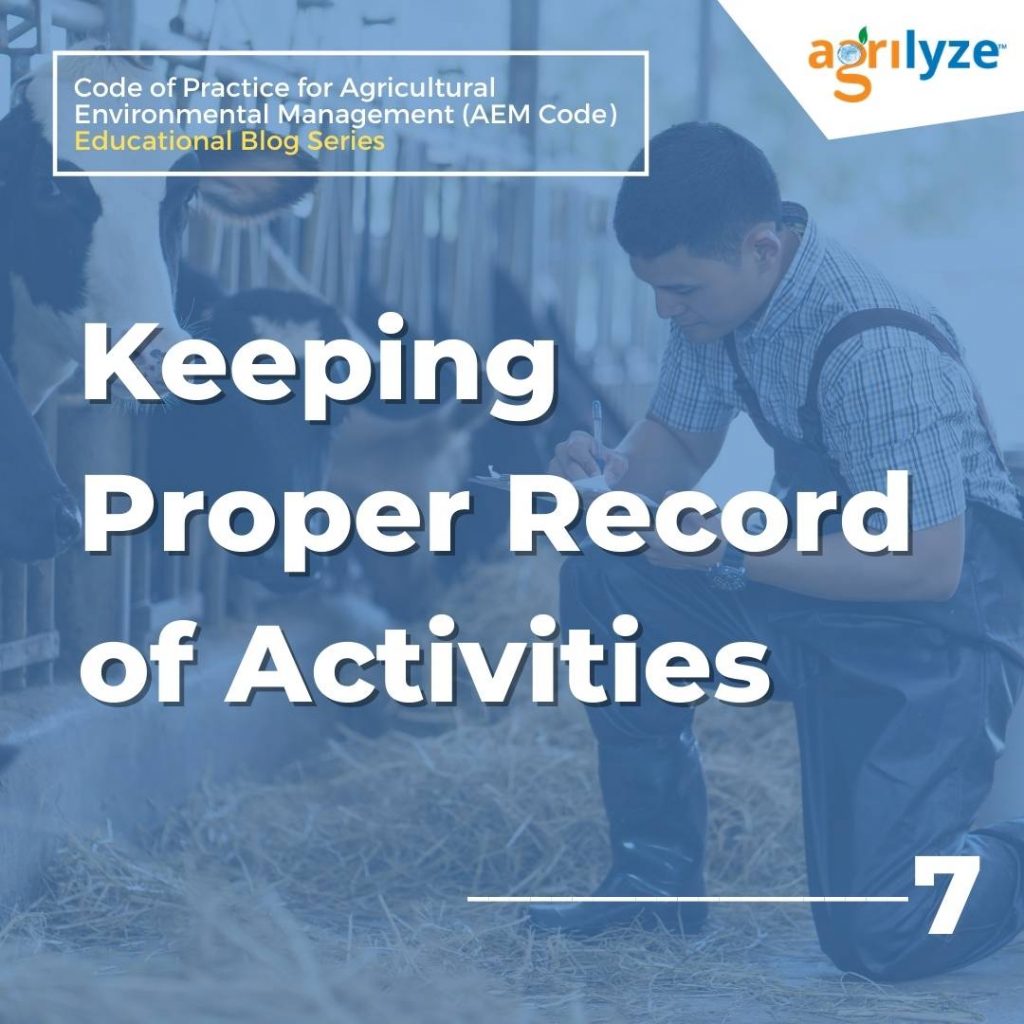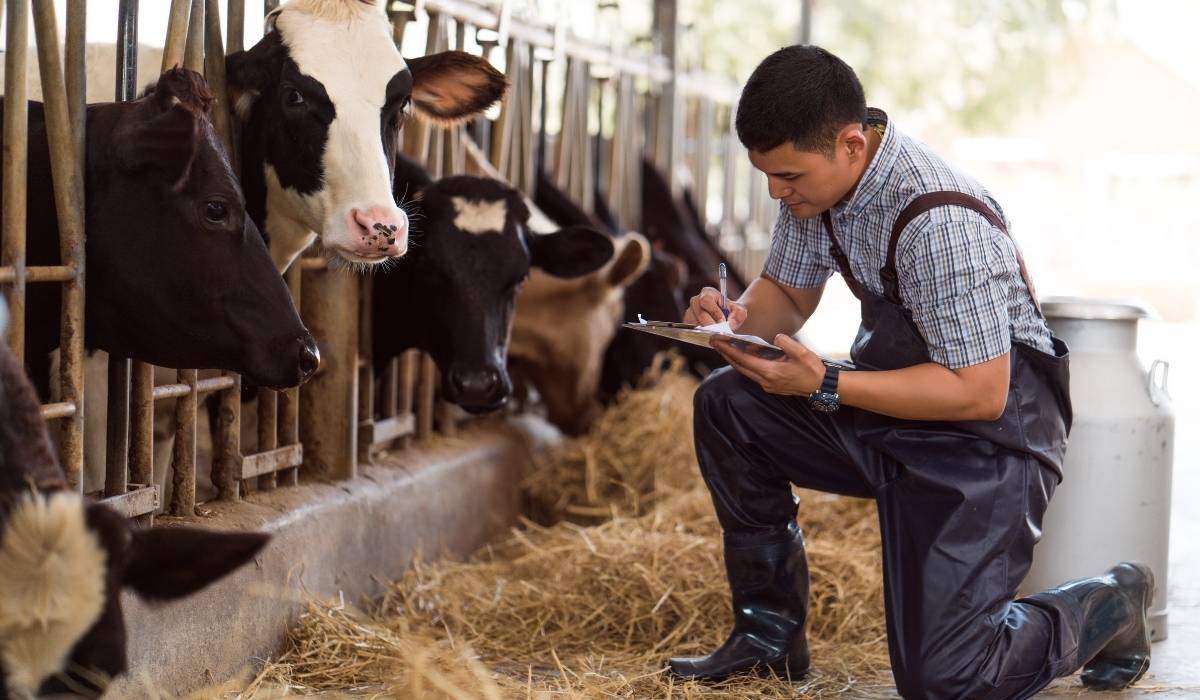Code of Practice for Agricultural Environmental Management – Record-Keeping
Farmers must keep records of farm activities for at least five years and provide them to a record inspector within five business days if requested. Although it is not required to submit records, farmers can ensure that they are meeting the Code of Practice for Agricultural Environmental Management by keeping a proper record of activities.
A record is information that demonstrates the way farmers are managing operations and events on the farm. Farmers aren’t required to use a specific form or template but should consider utilizing a proper system that organizes particular activities to ensure that records are easy to access and manage. To learn more about the required records in BC, please visit: https://www2.gov.bc.ca/gov/content/environment/waste-management/industrial-waste/agriculture/regulation-requirements/record-keeping
Pain Points
More than ever, farmers are looking for ways to project sales and expected expenses based on historical figures while also understanding everything they own and owe. This need makes record-keeping a crucial aspect of farm operation management.
Record-keeping may seem like a complicated process, but at the end of the day, it will contribute toward the efficient management of agricultural businesses. By keeping good records, farmers can make more informed decisions and plan for the future.
To become successful, farmers must not only be good producers, but excellent financial managers equipped with the ability to hold accurate farm records while establishing and maintaining a proven record-keeping system.
Here are 4 reasons why keeping proper farm records is essential:
- Improve farm management – by keeping a detailed farm journal that tracks every specific aspect of the farm, farmers can see exactly how their farm is functioning. Tracking activities can help determine the root cause of a problem, assisting farmers in knowing their animals, crops and finances better.
- Monitor progress – keeping good records helps farmers to ensure that they are progressing toward their goals and moving forward on their business plan. Ultimately, this contributes toward becoming more efficient, which will help farmers to make positive changes that will benefit their operations.
- Assist with loans and grants – to qualify for certain loans and grants, farmers may be required to provide financial records showing what they’ve earned, their expenses etc. Banks want to see that the farm is financially viable, so it is essential to keep good records to prove that.
- Assist with taxes – farmers should ensure that they’re paying the proper taxes for their farm. Tracking income and expense is a necessity for any farm.
Some types of records farmers should keep:
- Food safety and traceability are two growing concerns for both farmers and consumers. Specific standards have been set to demonstrate that the farm is following regulations, which helps protect the environment, worker safety and welfare, animal welfare and more.
- Harvest yield records compare crop yield year to year, thus helping farmers make more informed crop management decisions in the future. These records are crucial as they assist farmers in tracking their income against the cost of production.
- Tracking labour is crucial to properly manage payroll for farmworkers as efficient record keeping will save farmers time and money, making assessments of productivity easier.
- Pesticide and spray records help ensure that customers and employees are protected from exposure to harmful pesticide residues. For most countries, tracking chemical use is mandatory for complying with food and environmental safety regulations.
Overall, there are many benefits to good record-keeping (source: https://www.fbc.ca/blog/importance-keeping-good-farm-records-and-accounting-agricultural-businesses), such as:
- Become more efficient and be able to measure progress
- Be more prepared for the year-end review
- Better plan your GST and HST payments
- Help to avoid over or underpaying taxes
- Gain the ability to identify your operation’s strengths vs weaknesses
- Make changes and improvements that will impact agribusiness
- Make predictions and forecasts for productivity
- Minimize your tax burden by maximizing claimed expenses
- Become more efficient when paying employees and see what is owed to creditors
- Promote a more simplified process for applying for loans or selling the business
- Facilitate the distribution of profits to shareholders (dividends)
- Make it quicker for partnerships to view gains and losses
- Make records more accessible should the business get audited by the Canadian Revenue Agency
How Agrilyze Can Help
- Use tasks to document processes, assign responsibilities and attach documents and photos
- Track what is applied to fields and when as part of Traceability
- Map your farm and track where fields, crops, assets are
- Track staff and their time assigned to tasks
- Leverage baseline industry data to compare farm averages
- Store data in an auditable database
- Track progress over time and analyze using the Analysis module
- Create simple forms that work on desktop/mobile
If you have feedback about this post or would like us to explore a particular topic, please let us know by sending an email to [email protected].
Read the Code of Practice for Agricultural Environmental Management – Introduction (with infographic) – https://agrilyze.ca/code-of-practice-for-agricultural-environmental-management-introduction/



